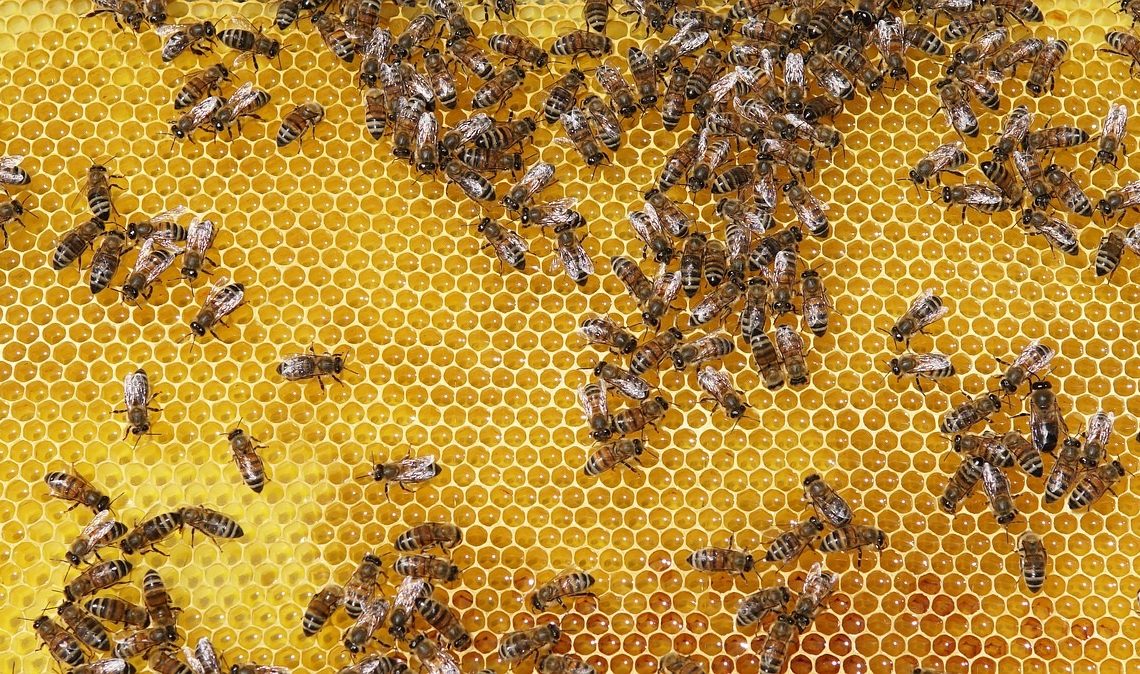

We’re here to help! Wild Yards is a completely free website that is 100% dedicated to helping you create a wildlife-friendly, sustainable yard. Read more
WildYards is reader-supported. When you buy a product through a link on our site, we may earn a comission. Every product is independently selected by our (obsessive) editors and our reviews are unbiased and objective. Read more about our mission or our privacy policy.
If you are already lucky enough to be welcoming bees into your garden or backyard, then it’s only reasonable to wonder whether or not it’s a good idea to feed them certain types of honey. After all – it’s what they’re known for! However, will fermented honey hurt bees if you feed it to them?
In some cases, yes, fermented honey can hurt bees – as it is, in effect, alcohol. You can feed bees fermented honey, but it’s not a good idea to do so regularly. Feeding fermented honey to bees on a regular basis could cause problems with their digestion. As you may or may not know, dysentery is a common digestive concern for bees.
Let’s take a closer look at why fermented honey isn’t always the best food source for your bees, and what you could feed them instead.
What is fermented honey?
Fermented honey is honey that has reacted with ‘wild yeast’ – which causes the produce to break down into alcohol, as well as CO2. It is a natural process, though many in the honey industry add specialist yeast to produce honey alcohol. It’s actually rather common to find fermented honey in a beehive. It will normally start reacting with yeast if left untouched, which is why beekeepers need to show their colonies so much attention.
Essentially it is much like wine fermentation – meaning that it has the power to get your bees ‘drunk’ if they consume too much! You will normally be able to spot fermented honey by the number of bubbles accruing on its surface – it can be foamy and cloudy, too. Crucially, non-fermented honey will be clear, and easy to tell apart.
Why is feeding fermented honey to bees a bad idea?
Honey contains enzymes and bacteria that help the bee process its food. Feeding too much honey to a bee could upset these natural processes and lead to digestive issues.
Fermentation, ultimately, causes this honey to turn into alcohol – which, in high doses, will likely pose bees health concerns. Yes, bees can get drunk – and too much alcohol will result in poisoning, just as it can for human beings (and other animals, in fact).
That said, there is split opinion over just how dangerous fermented honey actually is. Beekeepers with years of experience will likely come across bubbling, fermented honey very frequently – as uncapped honey, for example – and there are ongoing studies into just how much harmful alcohol is in the honeycomb of the average beehive.
There’s some fascinating research available on feeding fermented honey to bees – Ellis and Hayes Jr’s study, for example, is widely cited. Be sure to take a read if you’re getting deeper into beekeeping!
Ultimately, it’s a good idea to avoid feeding raw honey that’s been fermented to your bees. If you are merely growing a flower garden to help welcome the odd bee visitors, this is unlikely to be something you should worry about too deeply.
Should I feed honey to bees at all?
In some cases, yes, but some experts believe that feeding bees on honey from outside of their hive is never a good idea. It provides no benefit to the bees who live in the hive, and in fact might harm them by causing digestive issues.
Instead, try giving them simple sugars such as sucrose or granulated sugar, which are easy to digest and won’t cause any damage.
Be sure to read about the best sugars for bees if you are thinking of giving your visitors a sweet treat or two. For example, did you know that the molasses in brown sugar could prove toxic to bees?
Will bees get enough food from my garden?
Providing you have plenty of flowers that attract bees from which they can make nectar into honey, you normally won’t have much to worry about when it comes to keeping your bees well-fed.
In some cases, you may need to offer a little sugar water to a grounded bee – but the pollen content of your garden should ensure real honey keeps rolling out of the local hive.
Do you have a lot of experience with feeding bees in your garden, or even with a hive of your own?
